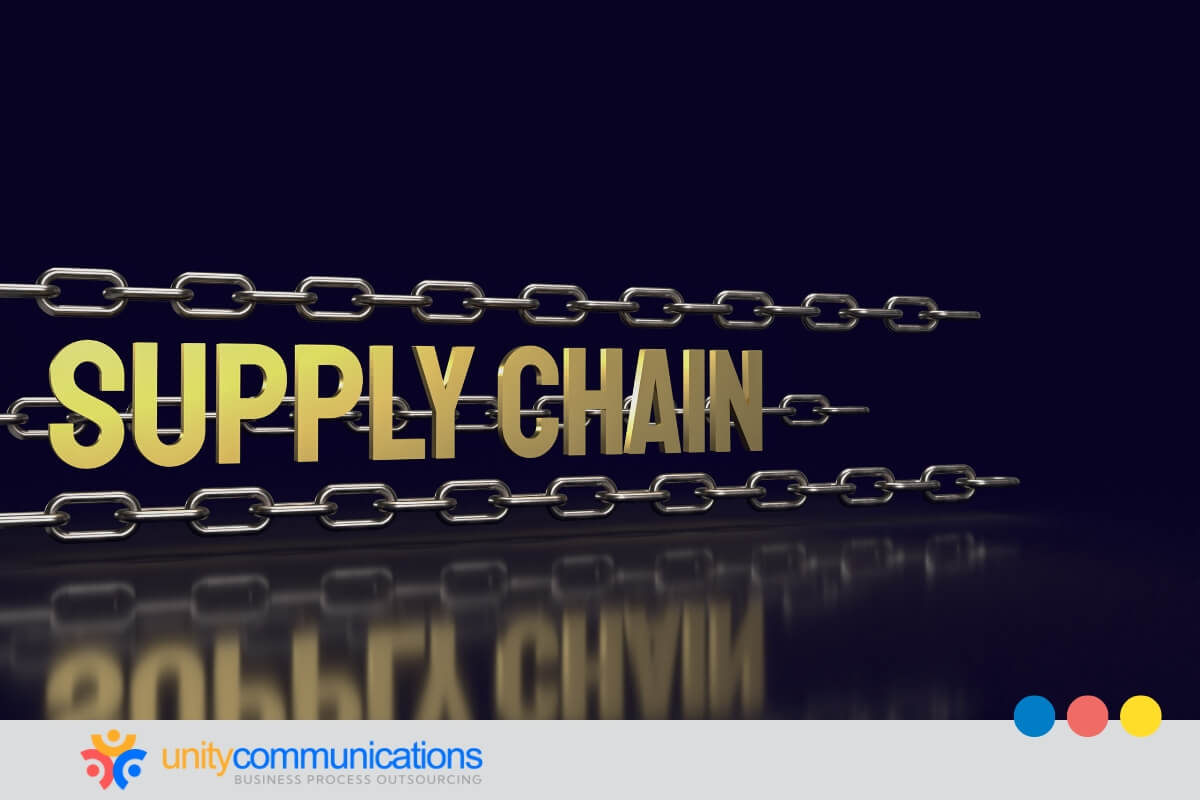IN THIS ARTICLE
Table of Contents
Corporate social responsibility (CSR) reflects your business’s commitment to ethical and sustainable practices, even when partnering with third-party providers.
When done right, CSR best practices in outsourcing can build trust, promote fair labor practices and environmental stewardship, increase customer acquisition and retention, and boost revenue.
So, how can your organization apply CSR principles in outsourced operations? This article outlines seven best practices that can elevate your outsourcing strategy and deliver meaningful global impact.
How CSR works in outsourcing

What is BPO, and how does it relate to CSR? BPO involves transferring specific business tasks or processes to an external service provider, often operating offshore or remotely. Standard functions of BPO include customer service, human resources, finance and accounting, and information technology (IT).
Businesses outsource to lower labor and operating costs, streamline workflows, increase internal team productivity, and improve their focus on other profitable activities, such as product development.
However, as outsourcing expands across borders, so does your responsibility.
Working with third-party providers means your brand is connected to their labor practices, environmental impact, and ethical standards. This is where CSR’s best practices in outsourcing matter.
Sustainable and socially responsible practices uphold fair labor standards, social and environmental responsibility, and ethical governance. They also protect brand reputation, build stakeholder trust, and support long-term growth.
Of the many CSR strategies, which delivers the most value when outsourcing? The following section shares seven.
7 CSR best practices in outsourcing

Use these seven actionable tips to align your outsourcing strategy with CSR goals. In the United States, 75% of companies by market capitalization have dedicated sustainability committees, reflecting the importance of following ethical and responsible business practices for growth.
You can practice the same with these seven tips:
1. Promote fair labor practices in outsourced operations
Fair labor practices are at the heart of ethical outsourcing. Practicing fair labor upholds CSR and protects worker rights. It demonstrates your commitment to ethical partnerships and fosters a positive business reputation.
Ensure fair labor practices in your BPO partnerships through the following:
- Conduct regular audits of your outsourcing partners’ labor conditions.
- Require compliance with international labor standards, such as those of the International Labour Organization (ILO).
- Include fair wages and working hour requirements in all outsourcing contracts.
- Partner with BPO companies that provide healthy and safe working conditions.
- Offer training and development programs to support workers’ growth and well-being.
- Establish grievance mechanisms for workers to report concerns without retaliation.
These tactics help create a responsible and ethical outsourcing framework that aligns with your CSR values.
2. Implement environmental sustainability with outsourcing partners
One of the popular CSR best practices in outsourcing is environmental sustainability because it reduces your company’s carbon footprint and supports global sustainability goals. Collaborating with BPO providers with the same commitment empowers you to make a positive ecological impact while strengthening your CSR strategy.
Implement environmental sustainability measures with your outsourcing partners through these strategies:
- Select only BPO providers with proven, certified environmental management systems.
- Require the use of energy-efficient technologies and renewable energy sources where possible.
- Encourage paperless operations and digitization to minimize waste.
- Partner only with providers committed to reducing their carbon footprints through sustainable practices.
- Promote responsible sourcing of materials and environmentally friendly product packaging.
- Monitor and review the environmental impact of your outsourcing operations regularly.
By working closely with your partners on sustainability development, you contribute to a greener supply chain and demonstrate leadership in responsible business practices.
3. Promote transparency and accountability in the supply chain
Transparency and accountability in your outsourcing supply chain maintain ethical standards and build stakeholder trust. Clear communication and responsible oversight can align your BPO partner with your CSR values.
Cultivate transparency and accountability in your supply chain using these techniques:
- Establish codes of conduct for all outsourcing partners.
- Regularly request reports on labor practices, environmental impact, and ethical compliance.
- Maintain open lines of communication with your outsourcing partners for timely issue resolution.
- Implement traceability systems to monitor sourcing, production processes, and labor conditions.
- Publish CSR goals and performance metrics to demonstrate accountability and transparency.
Fostering transparency and holding your partners accountable strengthens your outsourcing operations’ integrity and ethics.
4. Engage in community development through responsible outsourcing
About 96% of employees say volunteering programs boost company culture, highlighting CSR’s impact on morale and engagement. Extending this commitment, community development through responsible outsourcing creates a positive social impact beyond operations, including inclusive growth.
The following are ways to develop communities through ethical outsourcing:
- Partner with BPO providers that prioritize local hiring and skills development programs.
- Support initiatives that provide education, healthcare, and social services in outsourcing communities.
- Work with third-party firms that implement fair wages and inclusive employment opportunities for marginalized groups.
- Invest in social enterprises or BPO companies that focus on empowering disadvantaged communities.
- Collaborate on community projects, such as infrastructure development or environmental restoration efforts.
- Create programs that allow employees and outsourcing partners to actively contribute time and expertise to local causes.
As one of the CSR best practices in outsourcing, actively engaging in community development creates shared values and fosters more resilient populations through your outsourcing practices.
5. Select outsourcing partners with shared ethical values
Choosing an outsourcing company that shares your moral values is crucial for maintaining CSR integrity and consistency. Aligning with like-minded providers means they can follow the same ethical standards throughout their operations.
Choose a compatible BPO provider through the following best practices:
- Evaluate potential partners’ CSR policies during the selection process.
- Prioritize vendors with sustainability certifications such as the SA8000 Standard, which safeguards over 2 million workers across over 4,000 certified sites worldwide.
- Assess their track record on labor practices, environmental responsibility, and community engagement.
- Conduct interviews and site visits to understand their workplace culture and ethical priorities.
- Make CSR performance a key factor in your provider selection process.
- Outline mutual ethical expectations and CSR commitments in contracts and other relevant agreements.
Partnering with organizations that share your values strengthens your brand’s reputation and promotes a more responsible and ethical business strategy.
6. Monitor and audit outsourcing partners for CSR compliance
Ongoing monitoring and auditing of outsourcing partners can determine whether they consistently meet your CSR standards, identify potential risks, and recommend corrective actions to maintain responsible operations.
Apply the following CSR best practices in outsourcing to correctly monitor and audit your BPO partner:
- Schedule regular third-party audits to assess labor practices, environmental policies, and ethical conduct.
- Require detailed CSR performance reports from your partners, quarterly or annually.
- Use technology tools to track supply chain data, including labor conditions, sourcing, and environmental impact.
- Conduct surprise inspections to verify working conditions and adherence to ethical guidelines.
- Establish key performance indicators (KPIs) for CSR compliance and review them as part of ongoing performance evaluations.
- Establish a system for continuous feedback and immediate action on CSR issues.
Actively monitoring and auditing partners keeps them accountable and aligned with your CSR goals.
7. Educate internal teams and partners on CSR importance
One of the CSR best practices in outsourcing is educating internal teams and outsourcing partners to build a shared commitment to ethical and sustainable practices. When everyone involved understands your CSR goals, upholding standards across your operations becomes easier.
Here are ways to educate internal teams and partners on CSR:
- Provide regular training sessions on CSR principles, ethical sourcing, and sustainability practices.
- Make CSR guidelines and policies easily accessible to employees and partners.
- Host workshops and seminars featuring CSR experts and success stories to inspire engagement.
- Incorporate CSR expectations into onboarding processes for internal staff and outsourcing partners.
- Encourage open discussions and feedback on CSR initiatives to promote a culture of continuous improvement.
Educating internal teams and outsourcing partners on CSR isn’t just a checkbox; it’s a long-term investment in shared accountability and ethical alignment. By building awareness and fluency in CSR principles across your entire value chain, you create a culture where ethical practices aren’t just encouraged—they’re expected. Clear communication, consistent training, and open dialogue ensure everyone is equipped to support and strengthen your CSR efforts from the inside out.
The bottom line

Implementing CSR best practices in outsourcing is essential for promoting ethical operations, protecting workers’ rights, and championing environmental sustainability. Partnering with providers who share your values can cultivate transparency, accountability, and positive community impact throughout your supply chain.
Start strengthening your outsourcing ethics today by adopting responsible CSR strategies that drive long-term success. Let’s connect and explore how you can make a difference.





